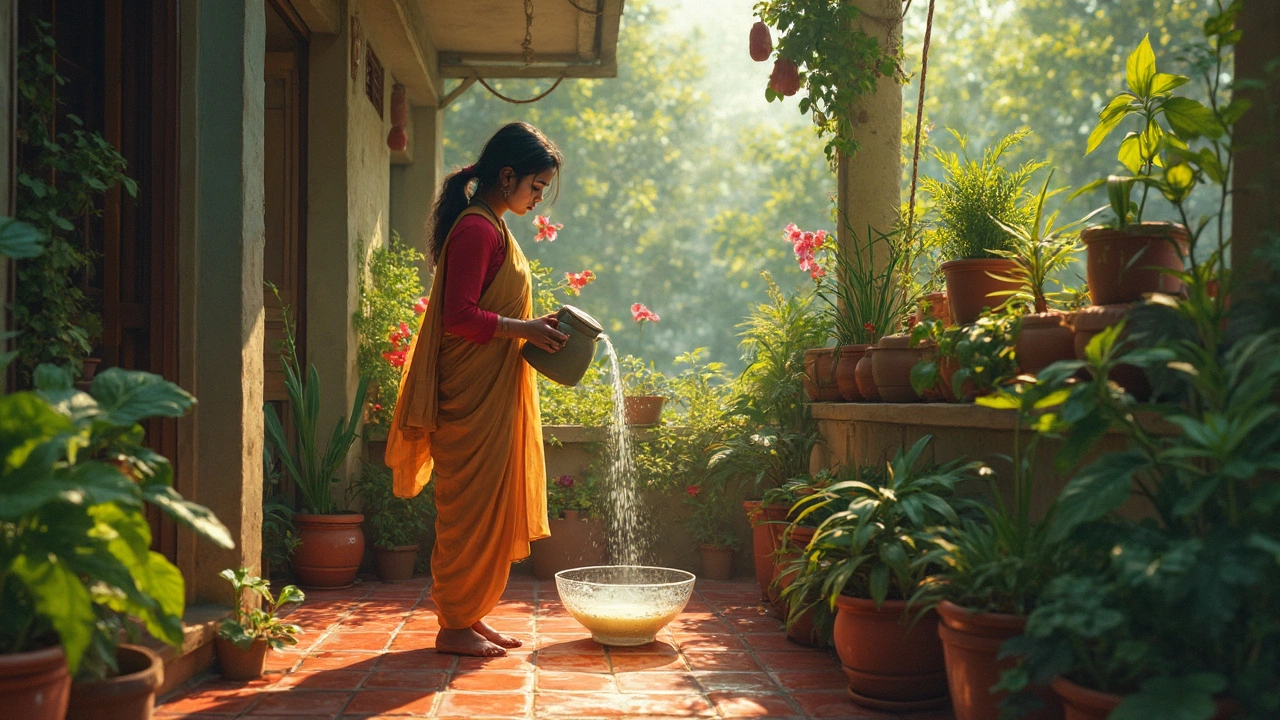Tap water straight from the faucet isn’t always ideal for houseplants. Chemicals like chlorine and minerals can mess with plant health. This article breaks down why neutralizing tap water matters and how you can easily do it at home. You’ll learn safe, quick methods to make tap water friendlier to your indoor green buddies. Ready to see stronger, happier plants?
Neutralize Tap Water for Healthier Plants: What Works and What Doesn’t
When you water your plants with tap water, the untreated water that comes from your faucet, often containing chlorine, fluoride, and dissolved minerals. Also known as municipal water, it’s convenient—but not always safe for your garden. In India, where many cities rely on treated tap water, those chemicals and hard minerals can build up in soil over time, hurting roots, killing beneficial microbes, and blocking nutrient uptake. You don’t need fancy gear or expensive filters to fix this. Just a few simple steps can make your water plant-friendly.
Chlorine, a chemical added to kill germs in public water systems evaporates naturally if you let water sit out for 24 hours. That’s it. No boiling, no chemicals. Just fill a bucket in the evening and use it the next morning. For hard water, water with high levels of calcium and magnesium that leave white deposits on pots and leaves, things get trickier. Hard water raises soil pH, making it harder for plants like hydrangeas or zinnias to absorb iron and other micronutrients. You can lower pH slightly by adding a teaspoon of vinegar per gallon—but only if your soil is already too alkaline. Don’t guess. Test your soil first.
Water pH, a measure of how acidic or basic your water is matters more than you think. Most plants like a range between 6.0 and 7.0. Tap water in Delhi or Bangalore might be 7.5 or higher. That’s not a crisis, but it’s a slow drain on plant health. Rainwater is ideal—free, soft, and naturally balanced. If you collect it, store it in clean containers under cover. Otherwise, use filtered or aged water for seedlings and sensitive plants like basil or jasmine. Even small improvements add up. A plant that gets clean water every week grows stronger, resists pests better, and blooms longer.
You’ll find posts here that show how water quality affects everything—from drip emitters clogging with mineral buildup to soil turning dense and lifeless. Some guides explain how to fix overwatered plants by improving drainage, but if your water is full of salts, even perfect drainage won’t help. Others talk about composting, but if your water kills the microbes in your compost pile, you’re wasting effort. This collection gives you the real, tested ways to make your water work for your garden, not against it. No fluff. No theory. Just what works on balconies in Mumbai, kitchen gardens in Pune, and terrace farms in Jaipur.
